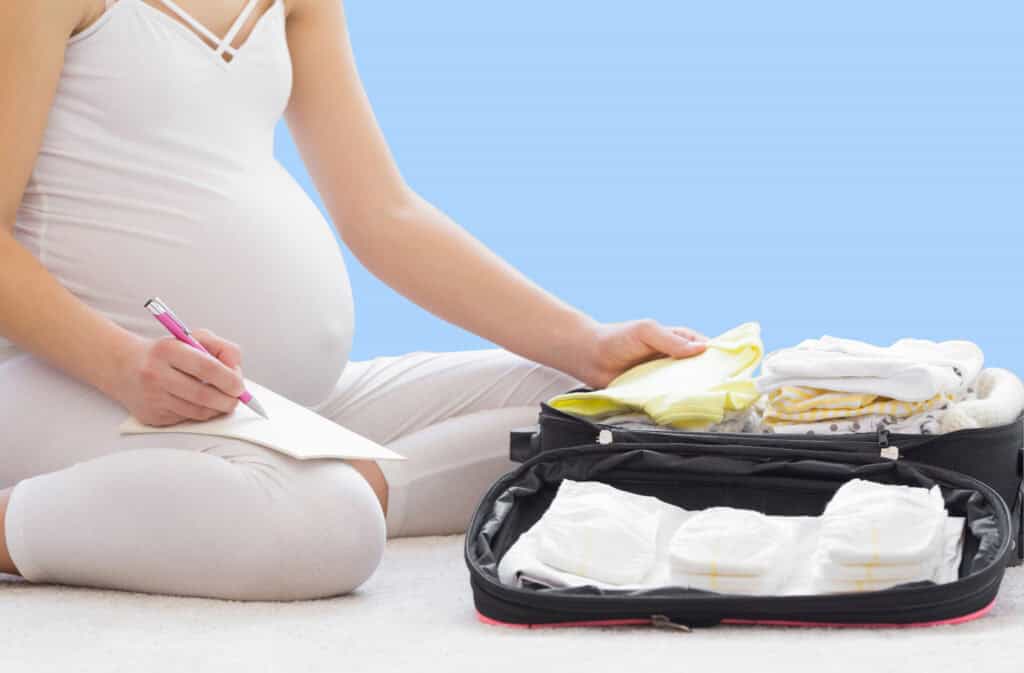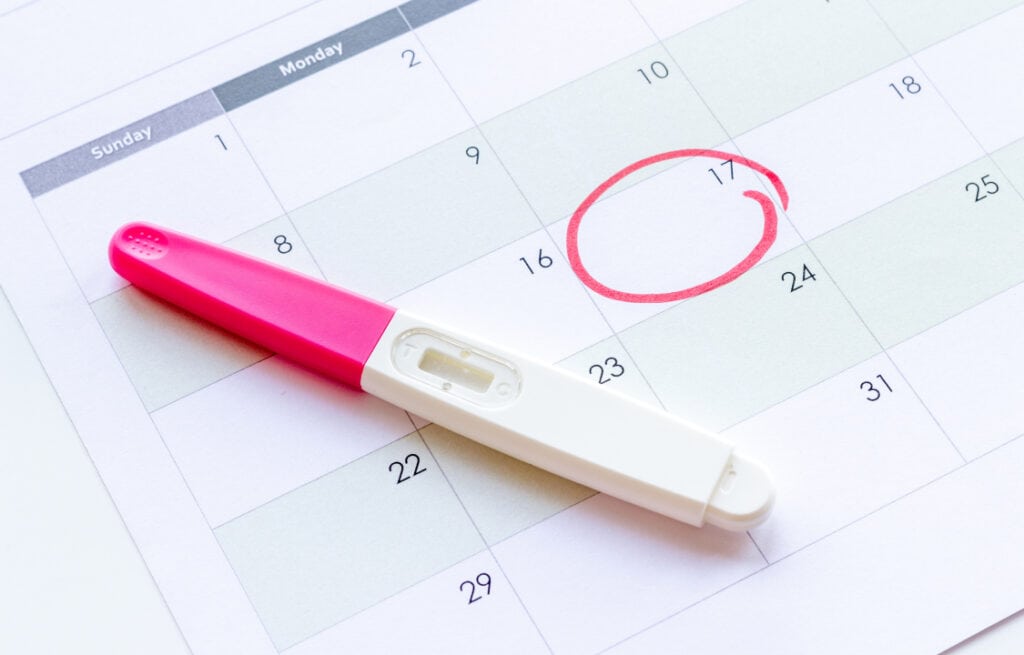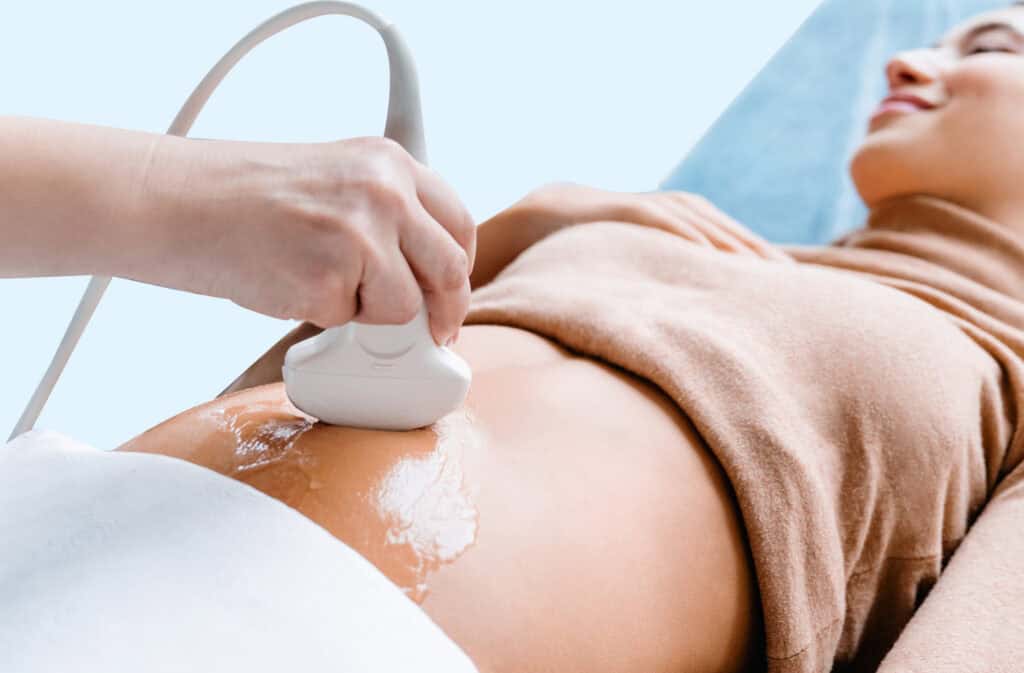Femia > Health Library > Pregnancy > Giving birth > Hospital bag checklist for mom: What to pack for labor and delivery
Hospital bag checklist for mom: What to pack for labor and delivery

- Updated Feb 11, 2025
- Published
CRAFTED BY HUMAN
Crafted by human At Femia, we provide accurate and up-to-date information at every stage of your journey, from trying to conceive, pregnancy and postnatal support. All content is created by a real person based on in-depth research and own professional experience. Femia ensures that you will receive expert advice, strict accuracy and a personalized approach from our authors/medical experts. Learn more about our editorial policy.
FACT CHECKED
Fact checked At Femia Health, we maintain the highest standards of editorial excellence in delivering content focused on helping you conceive, guiding you through pregnancy, and supporting you postpartum. Explore our content review principles to learn how we ensure the accuracy and quality of our health and lifestyle tips for every stage of your journey.
Preparing a hospital bag for labor in advance can help you reduce anxiety and feel better prepared, which is why it’s recommended to have it ready by 35–36 weeks of pregnancy. The essential hospital bag checklist for mom and baby includes:
- Essential hospital paperwork
- Comfy and loose clothing for the mother, including nursing tops and bras
- Essential self-care and toiletries
- Maternity or postpartum underwear and pads, nipple cream, nursing pads, and a postpartum recovery kit
- Additional comfort items, like pillows, blankets, and entertainment (including your gadgets with chargers)
- Outfits, hats, mittens, and socks for the newborn
- Newborn-size diapers, cotton wool or wipes, formula, and bottles
- A breast pump
- Swaddle blankets and burp cloth
- Infant car seat for ride home
Apart from these basics, there might be additional items you might choose to add, including items for your partner/support person.
Planning and packing a hospital bag for labor in advance is an important part of pre-labor preparation that helps you feel better prepared for your baby to arrive. Apart from helping you feel ready and eliminating anxiety, preparing a hospital bag can help you have a smooth experience during labor and delivery by ensuring that you and your baby have everything needed for comfort.
In this guide, we’ll share a comprehensive hospital bag checklist for mom and baby to help you prepare well!
Join thousands of moms-to-be who trust Femia for expert-backed
guidance during pregnancy and beyond
When to pack your hospital bag
Typically, an official estimated date of delivery (EDD) is established after calculating the first-trimester sonogram EDD date and then using the LMP. That is, you’ll usually know your EDD in advance and should be able to pack your baby hospital bag close to the expected date.
Nevertheless, it’s recommended to avoid late packing that relies solely on your EDD, because only about 4% of women actually deliver on EDD. To steer clear of last-minute stress, it’s generally good to have your bag ready by 35–36 weeks of pregnancy. If you’re at risk of preterm labor or expecting multiples, discuss with your healthcare provider whether you should prepare your bag earlier.
👉Find out more: Best sex positions to induce labor: What works and what doesn’t
Hospital bag checklist for mom
Now that you know when is the right time to pack, another question is what to pack in a hospital bag for mom. It’s recommended to start by identifying your own essentials for labor and postpartum recovery.
Here’s a pregnancy hospital bag checklist that covers must-have items for moms-to-be:
Labor essentials:
- Essential hospital paperwork, including your ID, hospital notes, insurance info, birth plan, and other documents you might need.
- A comfortable, loose-fitting outfit of your choice for giving birth. It can be a comfy robe, labor and delivery gown, etc.
- Non-slip socks or slippers.
- Lip balm, hair ties, and a water bottle with a straw.
- Any medications you typically use; for example, inhalers.
- A handbag to have all your labor items stored together.
- Clothing and towel for the birthing pool, if you’ve decided to have one.
- TENS machine, if you’re planning to use one.
Postpartum recovery:
- Comfy and loose dressing gowns and slippers, including nursing-friendly tops and comfortable nursing bras. Consider having 3–5 changes of clothing so that you’re prepared for spending several days in the hospital.
- Comfortable nightwear that’s breastfeeding-friendly (if needed).
- Maternity or postpartum underwear and pads. Bring 2–3 items of everything you need.
- Essential toiletries, such as a toothbrush, toothpaste, deodorant, skincare, face wipes, hair products, dry shampoo, hairbrush, hair bands, etc.
- Nipple cream and nursing pads (have them prepared even if not breastfeeding).
- Postpartum recovery kit that contains self-care products like a soothing perineum spray, cooling pads, and a peri bottle is especially helpful for managing discomfort after tearing or an episiotomy.
Comfort items:
- Towel.
- Contact lenses or glasses (if necessary).
- Your own pillows, blankets, and other items from home that will make you feel more comfortable. You can also bring a breastfeeding pillow (if needed) to make it more comfortable.
- A bag for dirty clothes.
- Eye mask and ear plugs for disturbance-free sleep (if you see fit).
- Your personal gadgets with chargers. Consider extra-long cables for convenience.
- Favorite snacks.
- Entertainment items, such as books, magazines, a tablet or laptop, etc.
Hospital bag checklist for baby
Once everything an expectant mother will need is prepared, it’s time to pack all the items your newborn will need.
Here’s a hospital packing list for your baby:
Newborn essentials:
- 2–3 outfits to wear at the hospital and a going-home outfit. Some clothing items you may want to stock up on include bodysuits, sleepsuits, vests, and a snowsuit, if you’re giving birth in the cold season.
- Baby hats, scratch mittens, and socks or booties.
- Swaddle blankets and burp cloth.
- Newborn-size diapers, cotton wool or wipes, formula, and bottles (if your hospital doesn’t provide them).
- Breast pump.
For the car ride home:
- Approved infant car seat installed in your vehicle—check out the National Highway Traffic Safety Administration recommendations to equip yourself with the right seat.
Partner/support person checklist
Once you have a hospital bag for labor ready, it can be a good idea to consider additional items your partner or support person should pack in advance to be ready for when you go to the hospital.
Here’s a list of hospital bag essentials for partners/support people:
- Several sets of comfy clothes and shoes to wear at the hospital.
- A swimsuit and towel, if your partner/support person will be helping you in the birthing pool.
- Personal phone and camera with chargers.
- Basic toiletries, such as a toothbrush, toothpaste, deodorant, shower items, etc.
- A personal water bottle and snacks.
- Any medications your partner/support person may need.
- Spare change for purchases in vending machines, parking, and other needs.
- A list of important contacts to reach out to after delivery.
Additional items for comfort and convenience
Now that you have a labor bag checklist with all the basic items, here are some additional items that can help make your labor more comfortable and stress-free:
- Essential oils for aromatherapy (if your hospital allows it).
- A white noise machine or calming music playlist.
- Other personal belongings of significance (excluding treasured or expensive items).
- Religious or cultural items that you might need after giving birth.
- Extra battery packs or chargers.
- An extra tote bag for items you will receive from your hospital (e.g. diapers, formula, etc.).
Join thousands of moms-to-be who trust Femia for expert-backed
guidance during pregnancy and beyond
What not to pack
When preparing your belongings, it’s also important to know what not to pack with you. Generally, there are two primary recommendations that we can give you on this:
- Items that you will be provided by your hospital. Typically, hospitals will equip you with basic toiletries, diapers, and wipes. Check with your hospital to clarify what they will provide to you to avoid bringing extras that you won’t need.
- Overly expensive or treasured belongings. Things like fine jewelry, expensive gadgets, or large sums of money may not necessarily come in handy at the hospital. Consider leaving these items at home to avoid the risk of losing or damaging them.
👉Find out more: Things to avoid after losing mucus plug
How to stay organized
Packing your hospital bag for delivery can feel somewhat overwhelming at first, simply because there are so many things to keep in mind and prepare. At this point, it can be hard to get organized and ensure that you don’t miss anything important out of sight. However, here are a few simple tips that can help you stay organized and prepare well:
Do your research
Before you start packing, get in touch with your hospital to see what they provide for mothers-to-be and their infants. This will give you an idea of what you don’t need to worry about.
Have a clear plan
Typically, by the time you start packing, you should have a detailed birth plan that considers the environment, relaxation techniques, and other specs of your labor. Keep these in mind to prepare all the necessary extras—for example, swimsuits for the pool, your playlist with relaxing music, or essential oils for aromatherapy.
Pack separately
When you mix up all the belongings needed for you, your baby, and your partner, it can be harder to find the needed items later on. We suggest packing all belongings into separate bags—one for you, one for the baby, and one for your partner—so you don’t miss anything out of sight.
Benefit from organizational items
To ensure easy access, it’s a good idea to divide the items in your bags into categories. To do this, you can use organizational hacks like packing cubes or labels.
Questions from the Femia community
Do I need to pack my breast pump?
While some hospitals may provide breast pumps for temporary use, it’s advisable to bring your own for convenience and familiarity. Check with your hospital in advance to confirm their policy.
What should I pack if I’m having a c-section?
If a cesarean section is a part of your birth plan, you may want to add additional items to your hospital bag. These can include several pairs of high-waisted cotton knickers, maternity pads, comfy and loose clothes, and backless slip-on slippers or flip-flops that can be put on without bending. Also, consider packing high-waisted, seamless cotton underwear to avoid irritation near the incision site. Additionally, you may want to pack a pillow to support your abdomen while moving.
What if I forget something?
Typically, there is no need to worry about it. Even if you forget something, you can expect your hospital to provide the basics you can’t do without, such as toiletries, diapers, and wipes. If you forget something that’s not that basic, you can also ask your partner or visitors to bring items from home.
How many days’ worth of clothes should I pack?
The answer depends mainly on your delivery type. In general, it’s a good idea to have enough clothes to stay 2–3 days at the hospital.
The bottom line
So, how do you pack for labor? Let’s briefly recap the primary points.
Hospital bag checklist for mom:
- Documents
- Comfy clothing
- Self-care items and toiletries
- Postpartum recovery products
- Comfort items, such as pillows, blankets, entertainment items (including gadgets and chargers), etc.
Hospital bag checklist for baby:
- Several outfits, including hats, scratch mittens, and socks
- Swaddle blankets and burp cloth
- Newborn-size diapers, cotton wool or wipes, formula, and bottles
- Car seat
Pregnancy hospital bag checklist for partner/support person:
- Clothing and shoes
- Toiletries
- Gadgets and chargers
- Water bottle and snacks
Use these checklists and additional tips to make the packing process seamless. And, keep in mind that forgetting to put something into your baby hospital bag shouldn’t be a cause of concern, because you can always get basics in the hospital and ask someone to bring necessities from home later.
References
- Edwards KI, Itzhak P. “Estimated Date of Delivery.” Treasure Island, 10, Sep. 2024. https://www.ncbi.nlm.nih.gov/books/NBK536986/.
- “Baby due date.” Better Health Channel. https://www.betterhealth.vic.gov.au/health/healthyliving/baby-due-date#.
- “Car Seats and Booster Seats.” The National Highway Traffic Safety Administration. https://www.nhtsa.gov/vehicle-safety/car-seats-and-booster-seats.
- Joanne Lewsley, Clare Herbert. “What to pack in your caesarean hospital bag.” Baby Centre, 1, Jan. 2023. https://www.babycentre.co.uk/a1052200/what-to-pack-in-your-caesarean-hospital-bag.

Learn if you can get pregnant without a period. Discover how ovulation works and the factors that can affect fertility with irregular menstrual cycles.

Learn about first-trimester screening tests, including how they’re performed, what they screen for, and what the results can indicate. Understand the process and what to expect during early pregnancy.

An in-depth guide to the symptoms, causes, and treatment of heavy periods after 40 with clots, signs that they are linked to perimenopause, and when to seek medical help.

